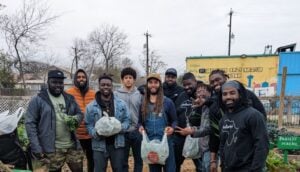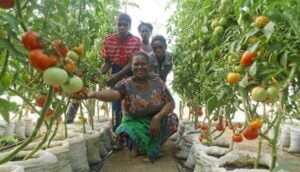Kellogg has set bold sustainability and emerging markets growth targets, including supporting the livelihoods of 500,000 farmers and doubling its emerging market sales by 2020. The company recognizes the great potential that developing smallholder-inclusive agricultural supply chains in emerging markets could have in supporting these business and social impact objectives.
Sustainability groups across many multinational companies see similar opportunity in smallholder inclusive supply chains, but often struggle to get traction within the broader company and to win support from external stakeholders–even when the company’s investments will create value beyond their immediate supply chains. So, how can corporate sustainability teams secure both the internal and external support required to successfully pilot and scale smallholder inclusive supply chains?
Using Egypt, where Kellogg had recently acquired two local food processors, as a platform, Kellogg and TechnoServe designed a partnership-driven approach to strengthening the company’s local smallholder supply chains. Through this project, we developed lessons learned around how sustainability teams and other divisions within a multinational company can broaden internal and external support (including co-investment) for developing and scaling inclusive agricultural supply chains:
1. Identify key internal stakeholders early and engage them regularly throughout in the process
Kellogg’s Sustainability team worked with a number of other key business functions in designing the model. It established a multi-stakeholder steering committee to oversee project that included members from Sustainability team as well as Leadership and Procurement representatives from its Middle East Business Unit and local subsidiary, Mass Food Group. These stakeholders were consulted when establishing the project’s social and commercial objectives, commodity areas of focus, intervention design, business case, and determining what to take forward into implementation.
Externally, Kellogg also engaged actors deemed important to the project’s success. Kellogg and TechnoServe invested time and resources into understanding the priorities of key external stakeholders–particularly potential co-funders–first. Equipped with this understanding , Kellogg’s approach to strengthening its local smallholder supply chains was designed to align with these priorities whenever possible.
For example, Kellogg selected the project’s focus commodities (rice and date) and key interventions to align with the Egyptian Ministry of Agriculture and Land Reclamation’s Sustainable Agriculture Development Strategy. Kellogg and TechnoServe also incorporated a horticulture component into its smallholder rice supply chain model so as to address the priorities of a high potential local co-funder, while also increasing the impact of its own investment on the incomes and resilience of smallholder farmers.
II. Define and quantify the business case
In order to secure broad internal support, it is vital to clearly demonstrate the benefit of a smallholder inclusive supply chain to the company. Kellogg’s Sustainability team therefore worked with TechnoServe to articulate the value proposition of inclusive agricultural supply chains to key divisions across the company.
With TechnoServe’s support, Kellogg’s Sustainability team then quantified the return on investment (ROI) of strengthening its Egyptian smallholder supply chains by determining the cost of piloting the approaches developed in Egypt and estimating the value of the security of supply it would generate for the company’s Egypt business unit. This helped a broader group of stakeholders within Kellogg assess investment an inclusive supply chain pilot against other commercial opportunities.
Looking ahead, implementation of the pilot (currently being done in partnership with ACDI/VOCA) aims to serve as an internal proof point for how Kellogg’s sustainability objectives can be achieved in practice while delivering both reputational and operational value to the company.
III. Secure partners that can ensure operational excellence in implementation
Implementation of inclusive agricultural supply chain models often requires skills that fall outside of the core competencies of a multinational company, so identifying and securing the right partners is critical to enabling a pilot to become a compelling proof point for internal and external stakeholders.
An implementing partner like a nongovernmental organization can provide required capacity building for farmers and other supply chain actors, as well as track and measure impact. Additionally, government partners can support the project in different ways–including providing advisory services–which can also reinforce the company’s license to operate and increase a project’s government relations value.
IV. Develop practical tools that others within the organization can use
To ensure that the knowledge gained while building this model continues to benefit the company, the Kellogg Sustainability team developed a how-to guide and toolkit based on the process and lessons from Egypt. This will empower other parts of the company to take a leadership role in advancing its sustainability commitments through local sourcing in emerging markets.
The full case study was prepared as part of the TechnoServe Initiative for Inclusive Agricultural Business Models and is available here.










